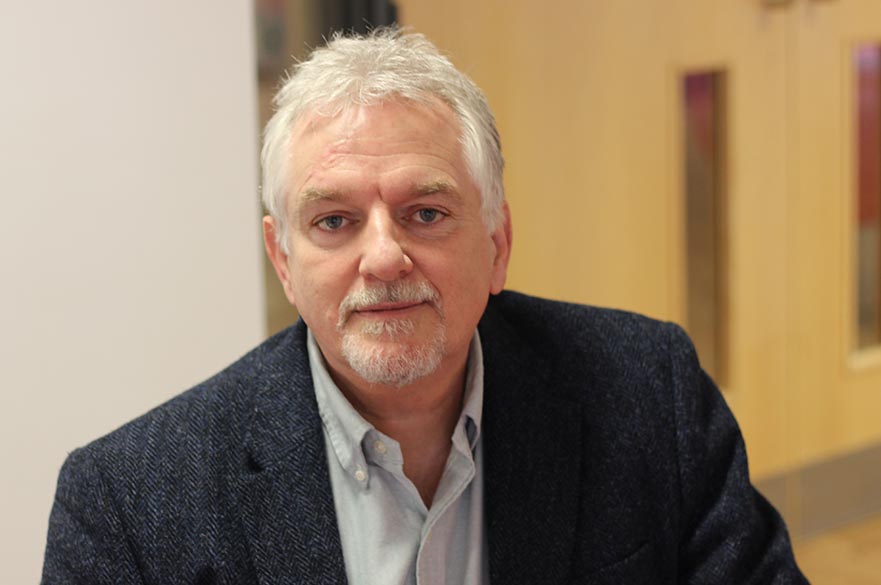People living in deprived areas more likely to suffer from poor sleep
People who live in deprived areas sleep worse than residents of affluent areas, according to a new study which also links ethnicity with poor sleep.
By Helen Breese | Published on 7 August 2023
Categories: Press office; Research; School of Social Sciences;

The study by psychologists at Nottingham Trent University (NTU) and the University of Roehampton explored UKBiobank data from around 500,000 people aged 40-69. They analysed reports of sleep problems such as sleeping for too long or too little for their age; waking in the night; waking too early; snoring; daytime sleepiness; and difficulty getting going in the morning.
These were combined into a Problematic Sleep Index, allowing the individual and combined influence of a wide range of characteristics to be quantified. This was cross-referenced with personal wealth, including household income and property ownership; ethnic group; employment; education; and postcode-based social deprivation information.
Almost one-third of participants reported sleeping shorter (24.7%) or longer (7.7%) than age-corrected recommended sleep durations – both of which are associated with increased risk of mortality. The incidence of shorter or longer sleep increased with social deprivation and varied with ethnicity.
The findings also showed that waking during the night, likelihood of sleeping during the day, difficulty of getting up in the morning, and snoring are all affected by the ethnicity of the respondent and the extent of social deprivation where they live.

Professor John Groeger
White people (82.4%) considered it easier to get up in the morning compared with Black (74.4%), Asian (73.5%) or Mixed ethnicities (74.2%).
People living in deprived areas found it harder to get up in the morning, and were more likely to nap or doze during the daytime and wake in the middle of the night.
While being employed or retired is associated with better sleep, being unable to work or unemployed is not, and Black people and those living in deprived areas reported the worst sleep overall.
The best sleepers were seen to be male, younger, affluent, educated to degree level, living with others in the home they own and have lived in for some time, with a high income, multiple vehicles, and a long-term job.
Lead researcher and head of Sleep Well Science at NTU’s School of Social Sciences, Professor John Groeger, said: “The sample size is sufficiently large to demonstrate that both social deprivation and ethnicity affect sleep quality independently of age, sex, personal wealth, employment, and education.
“The implications of these findings have relevance to better health, educational outcomes, and wealth creation and productivity as poor sleep causes all of these to be worse. Socially disadvantaged groups sleep worse, and this may be something we can 'level up'.
“We know we can improve sleep through education and intervention- and this research shows that targeting such interventions and education in particular geographic areas may the optimal use of scarce resource and expertise.”
The Problematic Sleep Index which combines all of the sleep issues explored into a single measure, can be used by community health care teams to identify individuals and families living in locations within particular postal areas where targeted support for specific sleep problems may be needed.
The full paper Social Deprivation and Ethnicity are associated with more Problematic Sleep in middle aged and older adults has been published by the journal Clocks and Sleep.
Notes for Editors
Press enquiries please contact Helen Breese, Public Relations Manager, on telephone +44 (0)115 848 8751, or via email.
About Nottingham Trent University
Nottingham Trent University (NTU) received the Queen’s Anniversary Prize for Higher and Further Education in 2021 for cultural heritage science research. It is the second time that NTU has been bestowed the honour of receiving a Queen’s Anniversary Prize for its research, the first being in 2015 for leading-edge research on the safety and security of global citizens.
The Research Excellence Framework (2021) classed 83% of NTU’s research activity as either world-leading or internationally excellent. 86% of NTU’s research impact was assessed to be either world-leading or internationally excellent.
NTU was awarded The Times and The Sunday Times Modern University of the Year 2023 and ranked University of the Year in the Whatuni Student Choice Awards 2023. It was awarded Outstanding Support for Students 2020 (Times Higher Education Awards), University of the Year 2019 (Guardian University Awards, UK Social Mobility Awards), Modern University of the Year 2018 (Times and Sunday Times Good University Guide) and University of the Year 2017 (Times Higher Education Awards).
NTU is the 5th largest UK institution by student numbers, with approximately 40,000 students and more than 4,400 staff located across five campuses. It has an international student population of 7,000 and an NTU community representing over 160 countries.
Since 2000, NTU has invested £570 million in tools, technology, buildings and facilities.
NTU is in the UK’s top 10 for number of applications and ranked first for accepted offers (2021 UCAS UG acceptance data). It is also among the UK’s top five recruiters of students from disadvantaged backgrounds and was the first UK university to sign the Social Mobility Pledge.
NTU is ranked the second most sustainable university in the world in the 2022 UI Green Metric University World Rankings (out of more than 900 participating universities).